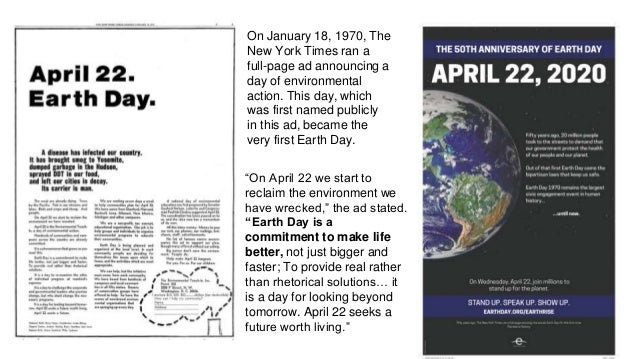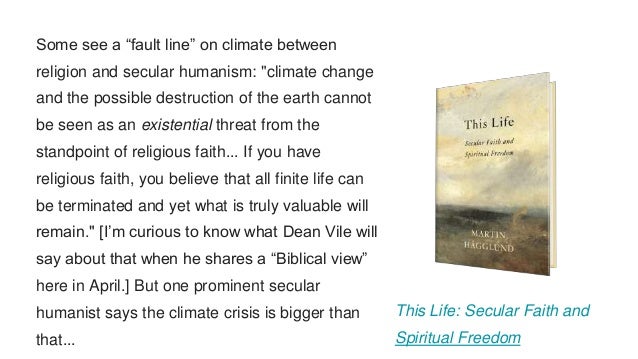Today is Earth Day. It was first observed in 1970, but its roots go back to the 1962 publication of Rachel Carson’s (books by this author) landmark book, Silent Spring, exposing the effects of pesticides and other chemical pollution on the environment.
During the late 1960s, Wisconsin Senator Gaylord Nelson had the idea to harness the energy and methods of the student protests against the Vietnam War to organize a grassroots conservation movement. At a press conference in 1969, he announced plans for a nationwide demonstration, to take place the following spring. Twenty million people nationwide participated in the first Earth Day, on April 22, 1970, and the government finally took notice, forming the Environmental Protection Agency and passing the Clean Air, the Clean Water, and the Endangered Species Acts.
In 1990, on the 20th anniversary, organizer Denis Hayes took Earth Day to the international arena, and coordinated events in 141 countries worldwide, boosting the awareness and practice of recycling. The year 2000 marked the first time the event was coordinated on the Internet, and the message was the need for clean energy to counteract climate change.
According to the Earth Day Network, Earth Day is celebrated by a billion people, making it the world’s largest secular holiday. WA
Earth Day 2020 was supposed to be a blowout 50th-birthday activist event, a public celebration of our planet and a call to action to ensure its preservation as a sustainable and hospitable abode for our species. COVID-19 has ruined that, but every day should be Earth Day.

"There is a tomorrow" Honors Lecture Feb.3, 2020


If you're looking for a Fall course addressing these concerns, please consider PHIL 3340-Environmental Ethics. Texts:
- Environmental Ethics: A Very Short Introduction by Robin Attfield
- Falter: Has the Human Game Begun to Play Itself Out? by Bill McKibben
- On Fire: The Burning Case for a Green New Deal by Naomi Klein
- The Story of More: How We Got to Climate Change and Where to Go from Here by Hope Jahren
The only real debates left are over how fast and how far the climate will change, and what society should do to limit the damage.
Fifty years on, Denis Hayes is still trying to keep the spirit that made Earth Day a world-changing event alive — and to refocus its energy on climate change.
How The Times Covered the First Earth Day, 50 Years Ago

For the first Earth Day, on April 22, 1970, The New York Times went big.
The paper covered the day’s events — rallies and teach-ins attended by millions — across the entire country, from New York to California. These days, that kind of wall-to-wall coverage would be called “flooding the zone.”
Two articles, one from New York, the other from Washington, made it onto Page One of the next day’s paper, with a top-of-the-page photo of crowds on a carless Fifth Avenue.
The Earth Day coverage continued for nearly two full pages inside. Yet for all the newsprint The Times devoted to the event, the accounts were mundane, weighed down by politicians’ speechifying and descriptions of community cleanups and other feel-good activities... (continues)
==
==
What We Know About Climate Change
by Kerry Emanuel
An M.I.T. climatologist and a conservative, Emanuel sounds the alarm in a measured and scientifically sound way, making clear what we know and what we don’t know. There is little panic in this slender book, but there is a lot of troubling information.
Emanuel specifically thought of his book as a way of offering ammunition to those trying to convince family members or friends who are skeptical or don’t understand the science.
“Young adults who are disputing this problem with their own parents or an uncle or something — they can hand the book to them and say, ‘Will you at least read this?’” Emanuel said in a 2013 interview with The Times. “One at a time, you might change minds.” (more reading recommendations)
==
— Phil Oliver (@OSOPHER) April 22, 2020
We've all had to adapt to cope with a pandemic. Climate change will force far harsher changes on our kids. All of us should follow the young people who've led the efforts to protect our planet for generations, and demand more of our leaders at every level. https://t.co/uNueQl5bNX— Barack Obama (@BarackObama) April 22, 2020
What's interesting about COVID-19 is that it proves how destructive we are, and how strong nature is. From what I read, nature is doing great now that humans aren't interacting with it as much. It's a positive amidst the negative.
ReplyDeleteKind of an odd comparison, but there was a movie called the Happening. It's a horror movie, but the story is basically that nature was tired of humans destroying everything, so instead of releasing normal oxygen, all plant-life released a toxin in the wind that would corrupt the people in the vicinity and force them to commit suicide. It's brutal, but I have been drawing comparisons between that movie and reality for a week now
It is so crazy, like Patricia pointed out, that sense the COVID-19 happened, how much our environment has improved. For example, LA has dropped its pollution an incredible amount because people are not travelling. I hope this opens eyes when all of this craziness is over and I hope we do not revert to our old ways.
ReplyDeleteI also heard that pollution has gone down in certain areas since social distancing measures were put into place. If it wasn't clear before how much man-made pollution impacts our environment, this is yet another reminder. As Patricia said above, the natural forces are ultimately stronger than us. It seems that we have adjusted to this idea that we have conquered nature, which is perhaps why so many want to turn a blind eye to climate change issues, but this sentiment is simply wrong. As the coronavirus is reminding us, without a vaccine or treatment already in place, we have no choice but to return to historical strategies to mitigate the spread of the virus. We need to continue progressing in science, but also maintain some level of humility for our weaknesses so that we can be prepared for new threats.
ReplyDeleteHumility seems in short supply, in the White House and Tennessee governor's mansion (among others). But that's exactly what we need more of, as we take our baby-steps in scientific research.
DeleteHa, ha, Patricia! The Happening does present an interesting view on what might finally be necessary in order to turn things around. I'm hoping, of course, that ditching humans isn't the only way to ensure Earth's survival. But who knows?
ReplyDeleteFor now, consider me a pessimist. We can post all the photos and videos in the world showing nature rebounding during this time. Soon, it'll be back to business as usual: belching industrial factories, freeways jammed with gas guzzlers, and skies lined with smog, rather than supremely preferable mountain vistas or distantly clear horizons.
Heather's comment gave me pause and connected with Dr. Oliver's mention of Rachel Carson:
"It seems that we have adjusted to this idea that we have conquered nature, which is perhaps why so many want to turn a blind eye to climate change issues, but this sentiment is simply wrong."
YES, Heather. Just the other day, I watched a documentary called Earth Days (linked below) with my daughter. It covered Carson's book Silent Spring and the backlash. Among the numerous--many baseless--criticisms, it was said that Carson incorrectly assumed "that the balance of nature is a major force in the survival of man, whereas the modern chemist, the modern biologist, the modern scientists believes that man is steadily controlling nature" (19:50-20:25). This was considered a scientific view, mind you.
As Heather's comment points out, I'm not sure we've made it much farther beyond this sort of "humans-dominate-nature" orientation. We might pay lip service to other perspectives, but a true and deep respect for living sustainably in harmony with the Earth, rather than attempting to bend it to our will and whim, is missing from our lifestyles.
https://mtsu.kanopy.com/video/american-experience-earth-days
Hard not to be pessimistic in the short term... and the window of effective action keeps shrinking, so the gap between short- and long-term does too. And yet, as I said at my Honors talk in February, the committed resolve of Greta and her many young comrades offers a glimmer of hope that "there is a tomorrow" and we'll begin to act like we understand that. The old dominion/domination model doesn't work, the "man vs. nature" paradigm they taught me in Middle School doesn't work, but if we're smart we'll learn to apply technology constructively and not destructively, to undo the damage we've done.
DeleteI also agree with Michael Chabon, who says parents (grandparents...) can't be deeply pessimistic. Let's not give the game to the anti-natalists.
Keep this thread in mind when you read my final post on Spinoza’s God. In Spinoza’s the Ethics, a major point is that man is part of nature, not apart from nature. One discussion question will ask, if you accept that you are a part of the one all-inclusive substance (God), just like the air and water and the trees, would you be more empathetic to their being harmed by you? This notion held by some that God gave man dominion over the earth, and thus we are free to harm it, is an example of superstition triumphing over reason to our detriment. We’ve talked about it before, but is should be that God gave man stewardship of the earth.
DeleteYou don't have to be a Spinozist to appreciate our continuity with the natural world, but if that's what it takes for someone to internalize a sense of custodial responsibility ("stewardship") then I say yay Spinoza.
DeleteI'm excited for this opportunity to advance scientific research. A few years ago, Trump but the funding for a lot of bacterial research because it was evolving so quickly that the medicines and progess we made would only last for a short while. Scientists have been discussing the possibility of a pandemic for years due to this bacteria growth as it evolved to overcome all our antibacterial soaps and cleaners. Here we are, and we're still so beyond due to lack of funding
ReplyDelete